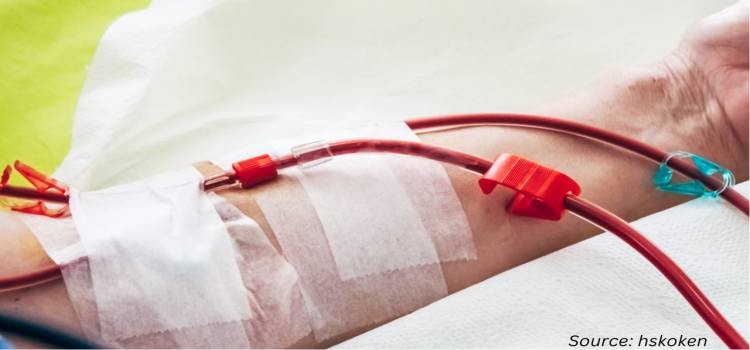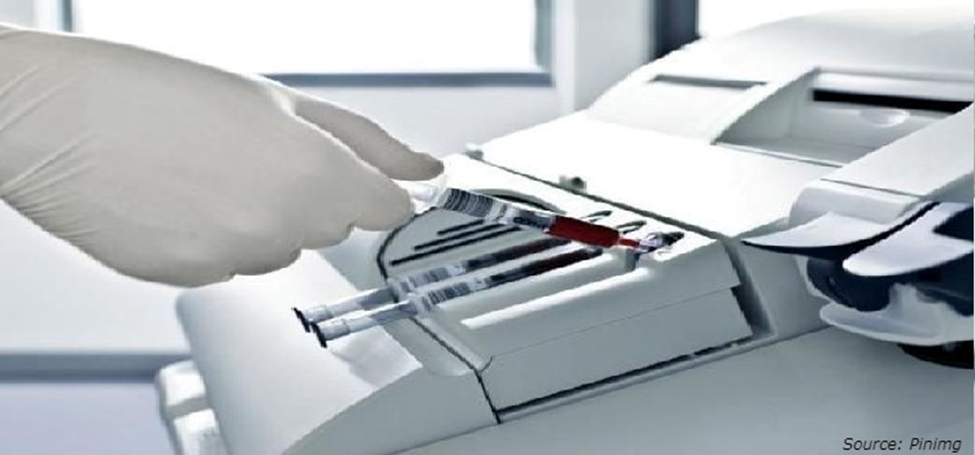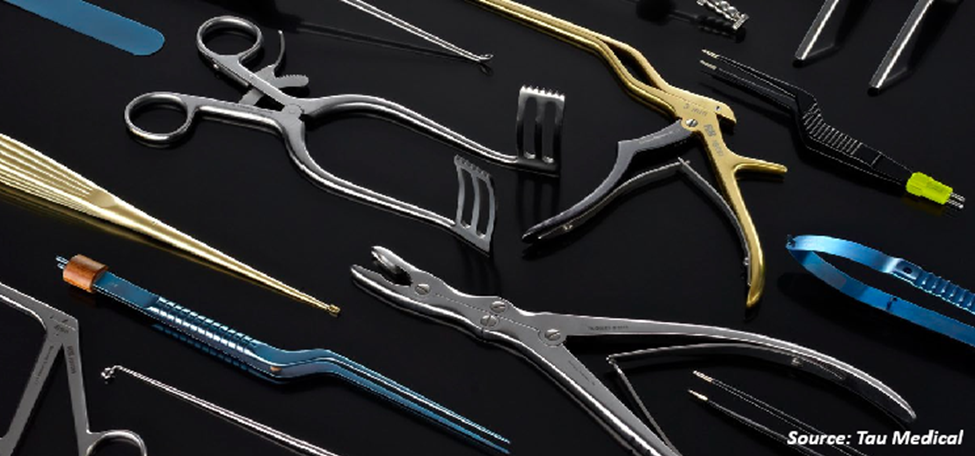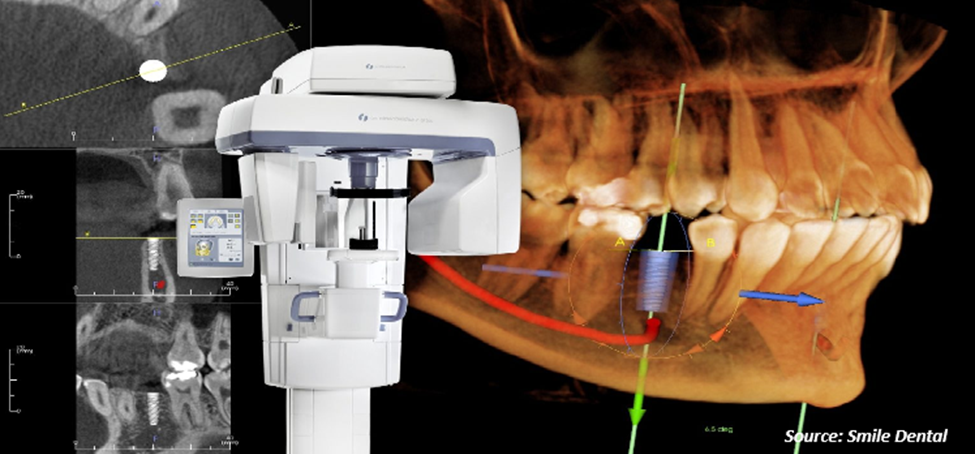Revolutionizing Kidney Health: Latest Trends and Advancements in Dialysis Technology
07-Dec-2024

Introduction
Dialysis, a crucial medical procedure, is carried out to perform vital kidney functions when it struggles or fails to effectively filter and eliminate waste products, excess fluids, and electrolytes from the bloodstream. This life-saving intervention becomes paramount for individuals grappling with kidney failure or severe dysfunction. The two primary dialysis methods, hemodialysis and peritoneal dialysis, leverage specialized machines or the peritoneal membrane to facilitate the removal of toxins, maintaining a delicate balance of essential chemicals in the body. According to Next Move Strategy Consulting, the dialysis market was valued at USD 113.32 billion in 2023, and is predicted to reach USD 145.15 billion by 2030, with a CAGR of 3.6% from 2024 to 2030.
In the exploration of the latest developments and emerging trends in dialysis technology and patient care within this article, we delve into how innovation is reshaping the landscape and enhancing the quality of life for dialysis patients. By spotlighting advancements in technology and patient-centered care models, this discussion aims to underscore the critical role dialysis plays in preventing the accumulation of harmful substances in the blood along with mitigating life-threatening complications associated with impaired kidney function.
Advancements in Home Hemodialysis: Patient-Friendly Solutions and Comprehensive Kidney Health Assessments
Innovations in home hemodialysis machines have made it easier for patients to perform hemodialysis in the comfort of their homes. These user-friendly devices are equipped with intuitive interfaces and remote monitoring capabilities, enabling healthcare providers to closely track patients' progress and adjust treatment plans as needed. For example, Signify Health, a subsidiary of CVS Health, introduced an extensive in-home assessment for kidney health to enhance its diagnostic and preventive services portfolio. These new screenings serve to broaden Signify Health's array of services. They aim to facilitate the early identification, diagnosis, and care of prevalent causes of illness and death in individuals under Medicare Advantage coverage. As part of an In-home Health Evaluation (IHE), Signify Health providers administer the kidney health assessment, and this service is offered at no extra expense to Medicare Advantage plan members.
AI in Dialysis: Personalized Treatment Optimization and Predictive Healthcare Solutions
The integration of artificial intelligence (AI) and machine learning technologies in dialysis machines marks a transformative step forward in enhancing the precision and efficiency of kidney care. These advanced systems go beyond conventional approaches by dynamically optimizing treatment parameters in real-time, a capability that significantly elevates the level of personalized care provided to patients.
By leveraging AI and machine learning, dialysis machines are empowered to swiftly adapt treatment prescriptions according to the evolving needs of individual patients. This adaptive responsiveness ensures a level of efficiency and customization previously unattainable as the technology continuously learns and refines its responses based on real-time data and patient feedback.
Furthermore, the implementation of AI-driven predictive analytics in the realm of dialysis is revolutionary. These analytics platforms enable healthcare providers to identify potential complications before they reach critical levels proactively. By analyzing patient data, biomarkers, and other relevant indicators, AI assists in forecasting and flagging potential issues. This, in turn, allows healthcare professionals to intervene promptly and prevent the escalation of complications.
For instance, RenalytixAI and DaVita signed a partnership to implement an AI-driven diagnostic tool aimed at assisting in the identification of individuals exposed to developing kidney disease or kidney failure. RenalytixAI's device, KidneyIntelX, utilizes a machine-learning algorithm that relies on blood biomarkers and electronic health records to generate a personalized risk score for patients. As AI and machine learning evolve and become more deeply integrated into healthcare, we can anticipate further advancements that will enhance patient care and contribute to better overall health outcomes.
Revolutionizing Dialysis: Wearable and Portable Devices Transforming Patient Mobility and Treatment
One of the most significant advancements in dialysis technology is the development of wearable and portable dialysis devices. These compact systems, often resembling a small backpack, offer patients greater mobility and flexibility in their treatment schedules. Patients can receive dialysis treatments while going about daily activities. This, in turn, enhances their overall quality of life. For instance, AWAK Technologies (AWAK), an innovative medical technology firm specializing in dialysis using regenerative technology for end-stage renal disease, revealed that the U.S. Food and Drug Administration (FDA) conferred the breakthrough device designation upon its AWAK Peritoneal Dialysis (AWAK PD) device. This device, which is both wearable and highly portable, incorporates AWAK's patented sorbent technology. With the advancement in technology, we can expect innovations in dialysis technology, ultimately leading to even better patient outcomes than before.
Artificial Kidneys Paving the Way for Enhanced Kidney Disease Treatment
Researchers have engaged in the development of artificial kidneys aimed at replicating the functions of natural kidneys more effectively than before. These bio-engineered devices aim to reduce the reliance on traditional dialysis treatments. For instance, KidneyX represents a public–private partnership between the American Society of Nephrology (ASN) and the U.S. Department of Health and Human Services (HHS). The partnership launched a prototype based on an artificial kidney. The project combined the two essential parts of its artificial kidney, the hemofilter, and the bioreactor. Then it successfully implanted the smartphone-sized device for preclinical evaluation. Thus, the ongoing efforts to develop artificial kidneys hold tremendous promise in revolutionizing the treatment of kidney-related conditions.
Telemedicine in Dialysis: Remote Support for Enhanced Patient Access
Telemedicine for dialysis care constitutes a groundbreaking approach that harnesses the power of remote medical technology and digital communication tools to deliver comprehensive healthcare services and support to individuals undergoing dialysis treatment. This innovative use of telemedicine has witnessed a significant rise in prominence, playing a pivotal role in revolutionizing how healthcare is administered to dialysis patients.
In the realm of dialysis, telemedicine encompasses a range of applications, notably remote monitoring and virtual consultations. Remote monitoring utilizes advanced technologies to gather real-time data on a patient's vital signs, treatment adherence, and other relevant metrics from the comfort of their home. This information is securely transmitted to healthcare providers, allowing them to monitor patients' well-being and treatment progress without frequent in-person visits.
For instance, SageWest Health Care joined forces with Specialist TeleMed (STeM), a renowned telemedicine provider with expertise across various medical domains. This collaboration brought about the introduction of inpatient hemodialysis services and the integration of a telenephrology program. This innovative telenephrology program simplifies the process of patients accessing consultations and assessments from expert providers by utilizing advanced technology for their convenience.
Conclusion
Recent advancements in dialysis technology and patient care represent a paradigm shift in the management of kidney disease. These advancements not only boost the efficacy of dialysis therapy but also strongly emphasize enhancing the overall patient experience and fostering environmental sustainability. The evolution of technology and the growing adoption of patient-centered care models by healthcare providers set the stage for a future in dialysis. This future promises improved outcomes and a significantly-enhanced quality of life for individuals grappling with kidney disease. As innovation continues to play a pivotal role in healthcare, the trajectory of dialysis points toward a more patient-centric, effective, and sustainable landscape.
About the Author
 Sikha Haritwal is a researcher with more than 3 years of experience. She has been keeping a close eye on several industry verticals, including healthcare, personal care products, and consumer electronics. She has avid interest in writing news articles and hopes to use blog as a platform to share her knowledge with others. When she is not following industry updates and trends, she spends her time reading, writing poetry, cooking, and photography. The author can be reached at info@nextmsc.com
Sikha Haritwal is a researcher with more than 3 years of experience. She has been keeping a close eye on several industry verticals, including healthcare, personal care products, and consumer electronics. She has avid interest in writing news articles and hopes to use blog as a platform to share her knowledge with others. When she is not following industry updates and trends, she spends her time reading, writing poetry, cooking, and photography. The author can be reached at info@nextmsc.com
Add Comment
Related Blogs
Role Of Companies In Shaping The Blood Gas And Electrolyte Analyzer Market
According to Next Move Strategy Consulting, the global blood...
Analysis of Key Players Operating in the Global Surgical Instrument Industry
Next Move Strategy Consulting forecasts more than 1.7-fold g...
CBCT Industry Is Dominated By Dentsply Sirona, Philips, & Vatech With More Than 45% – Know Why
Next Move Strategy Consulting predicts a significant growth...











